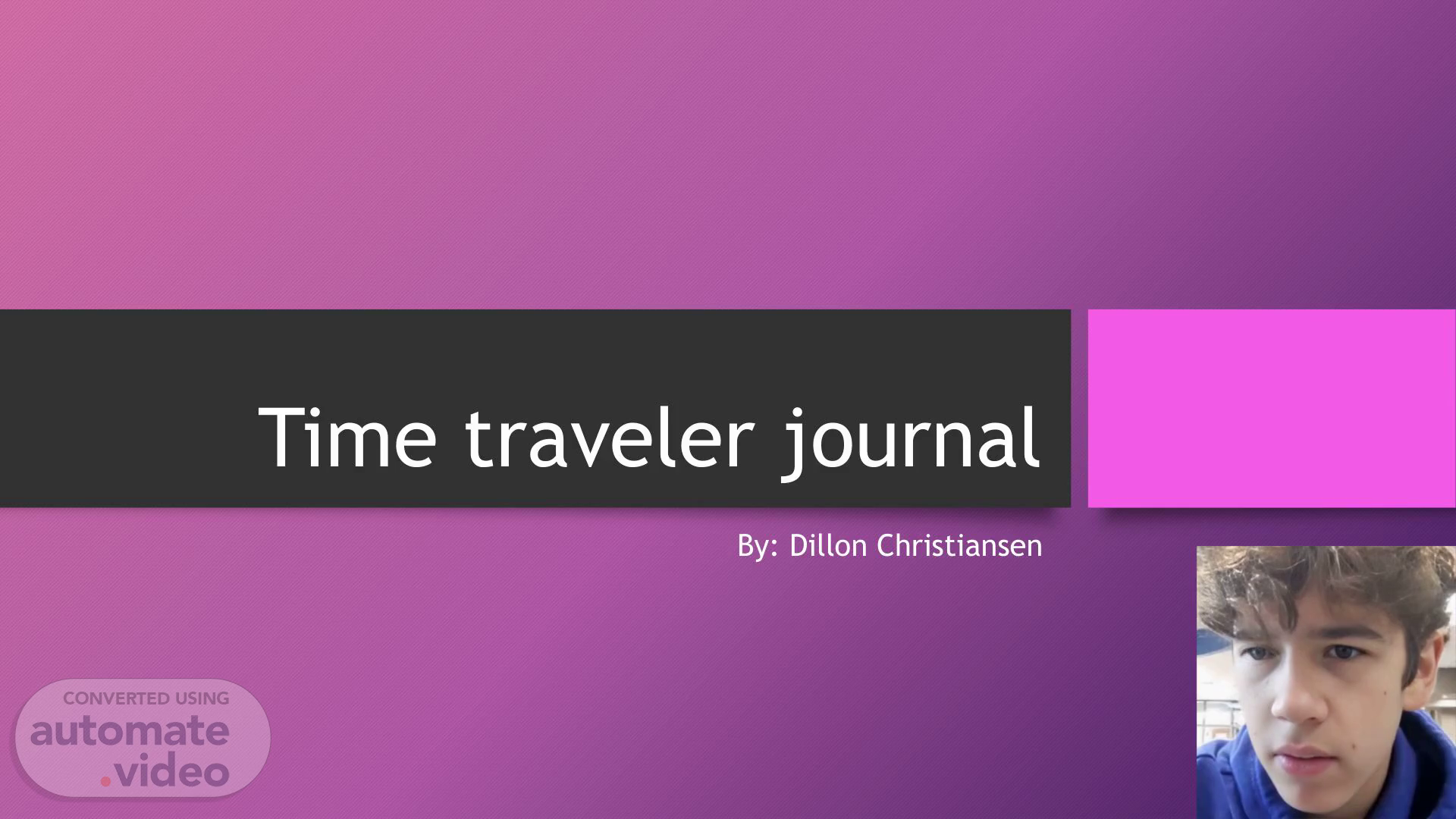Scene 1 (0s)
Time traveler journal By: Dillon Christiansen.
Scene 2 (13s)
[Audio] It was a time of great struggle and hardship. As a villager, I worked tirelessly to till the land for my lordship, barely scraping together enough food to survive. Every aspect of life was dictated by the teachings of the Church, and we believed that everything that happened was part of God's plan. The Church brought us comfort, but also instilled fear in our hearts. The devastating effects of the Black Death only added to our uncertainty about the future. Despite these challenges, we found solace in simple pleasures like music, the warmth of the fire, and celebrations of harvests. But overall, life was a constant battle for survival, with the hope that one day things would improve..
Scene 3 (53s)
[Audio] Every day was a struggle for survival. The common people woke up with uncertainty, not knowing if they would have enough food to eat that day. With the lords and nobles taking a large portion of their income in taxes, they were left broke and poor. Not only were they struggling with poverty, but they also lived in constant fear of catching the infamous Black Death. The plague spread rapidly, taking the lives of millions and leaving many more to suffer. To make matters worse, the wealthy and privileged, like Mariane Antonnitte, mocked the struggles of the common people. Her infamous quote, "If they can't have bread, give them cake," reflects the lack of empathy and understanding towards the unfortunate circumstances of those living in poverty..
Scene 4 (1m 38s)
[Audio] In this era, I witnessed the rebirth of classical knowledge and the emergence of innovative artistic expressions. The works of Leonardo da Vinci and Michelangelo captivated my attention, as they seemed to bring art to life. Meanwhile, scientists like Copernicus and Galileo challenged traditional beliefs, paving the way for new discoveries and perspectives. The Catholic Church's influence waned, allowing fresh voices and patrons to rise to prominence. This was an age of transformation, marked by a focus on reason, creativity, and individuality. People began to question the status quo, leading to groundbreaking ideas about governance and societal structure. I felt confident that I was living through a pivotal moment in human history..
Scene 5 (2m 22s)
[Audio] The Scientific Revolution marked a significant turning point in our understanding of the world. New scientists, such as Copernicus, Galileo, Kepler, and Newton, challenged ancient beliefs by emphasizing observation and experimentation over tradition and religion. Their discoveries, including the heliocentric model of the solar system and the laws of motion and gravity, laid the foundation for modern science. This shift towards questioning and evidence-based inquiry set the stage for future scientific advancements..
Scene 6 (2m 57s)
[Audio] I am the absolute ruler of this kingdom, where all power resides solely within my grasp. Every decision, every law, and every action is subject to my approval alone. I wield complete control over the army, the economy, and the lives of my subjects. No one dares to question my authority, and I make choices that shape the destiny of my nation. I am the ultimate authority, unbound by limitations, and my word is law. I command respect and inspire fear..
Scene 7 (3m 28s)
[Audio] As the Enlightenment arrived, I developed the view that society was guided by reason, science, and individual rights. I believe that people can make progress through knowledge and that tradition and religious belief should not dominate our lives. It was then that I felt encouraged to challenge authority, including monarchies and the church, and to promote ideas of freedom, equality, and democracy. For me, the Enlightenment marked a turning point where humanity realized that progress was possible by embracing reason and questioning established power structures..
